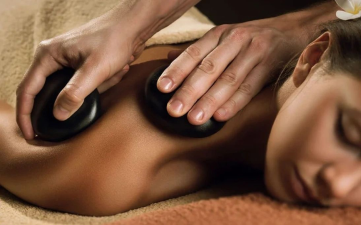When it comes to skincare and beauty routines, there is one product that consistently stands out as a game changer: sunscreen. Despite its essential role in protecting the skin, sunscreen is often overlooked or deprioritized in beauty regimens. The truth is that wearing sunscreen daily is crucial not only for maintaining youthful skin but also for overall skin health and protection.

Understanding the Role of Sunscreen
What is Sunscreen?
Sunscreen is a topical product designed to protect the skin from the harmful effects of the sun's ultraviolet radiation. It works by either absorbing, reflecting, or refracting sunlight. Sunscreens typically contain active ingredients that provide varying levels of protection against UVA and UVB rays.
Types of UV Radiation
There are two primary types of ultraviolet (UV) radiation that impact the skin:
-
UVA Rays: These rays penetrate deep into the skin and are primarily responsible for premature aging, including wrinkles and sunspots. UVA rays are consistent throughout the year and can penetrate through clouds and glass.
-
UVB Rays: UVB rays are responsible for causing sunburn and play a significant role in the development of skin cancer. The intensity of UVB rays varies based on the season, location, and time of day.
How Sunscreen Works
Sunscreen contains active ingredients that either absorb UV radiation (chemical filters) or physically block it (physical filters).
-
Chemical Sunscreens: These formulations absorb UV radiation and convert it into heat, which is then released from the skin. Common chemical ingredients include avobenzone, octisalate, octocrylene, and oxybenzone.
-
Physical (Mineral) Sunscreens: These products contain active mineral ingredients such as zinc oxide and titanium dioxide that sit on the skin’s surface and reflect UV rays. They start working immediately upon application and are often recommended for sensitive skin.
The Importance of Wearing Sunscreen Daily
1. Protection Against Skin Cancer
One of the most significant reasons to wear sunscreen is its proven ability to reduce the risk of skin cancer. Studies indicate that regular use of sunscreen can lower the risk of developing melanoma and non-melanoma skin cancers by blocking harmful UV radiation from causing DNA damage in skin cells.
2. Prevention of Premature Aging
Exposure to UV rays accelerates the aging process of the skin, leading to fine lines, wrinkles, and loss of elasticity. Sunscreen plays a vital role in preventing photoaging, allowing you to maintain a more youthful appearance over time.
3. Reduction of Hyperpigmentation
Sunscreen is essential for individuals prone to hyperpigmentation, which can manifest as dark spots or uneven skin tone. UV exposure can exacerbate these conditions, making the daily application of sunscreen crucial for those seeking to maintain an even complexion.
4. Protection Against Environmental Damage
Sunscreen acts as a barrier against not only UV rays but also other environmental factors that can harm the skin. Pollutants and pollutants can lead to oxidative stress and inflammation in the skin, and sunscreen helps to minimize these potential damages.
5. Maintaining Overall Skin Health
Regular use of sunscreen contributes to overall skin health by preventing moisture loss and maintaining the skin's barrier function. It reduces the risk of conditions such as sunburn, which can negatively impact the skin's health and appearance.
Choosing the Right Sunscreen
SPF Explained
SPF, or sun protection factor, measures a sunscreen's effectiveness at blocking UVB rays. The higher the SPF, the greater the protection. Here is a general guideline:
- SPF 15: Blocks about 93% of UVB rays.
- SPF 30: Blocks about 97% of UVB rays.
- SPF 50: Blocks about 98% of UVB rays.
While higher SPF numbers can offer slightly more protection, no sunscreen can block 100% of UV rays. It is also essential to remember that higher SPF formulations may give a false sense of security, leading to longer sun exposure without reapplication.
Broad-Spectrum Protection
When selecting sunscreen, look for products labeled as “broad-spectrum.” This designation means the sunscreen protects against both UVA and UVB rays, providing comprehensive protection for your skin.
Ingredients to Look For
There are two primary types of active ingredients in sunscreen:
-
Chemical Ingredients: While effective, some individuals may experience skin irritation or allergic reactions to certain chemical filters. If you have sensitive skin, pay attention to these ingredients and consider mineral options.
-
Mineral Ingredients: Zinc oxide and titanium dioxide are the two main mineral ingredients used in physical sunscreens. These ingredients are often gentler on the skin and are less likely to cause irritation.
Consider Your Skin Type
When choosing sunscreen, consider your skin type and any specific concerns:
-
Oily Skin: Look for oil-free, matte-finish, or gel-based sunscreens that won't clog pores.
-
Dry Skin: Choose hydrating sunscreens with moisturizing ingredients like hyaluronic acid or glycerin.
-
Sensitive Skin: Opt for mineral sunscreens with calming ingredients to reduce the risk of irritation.

Applying Sunscreen Effectively
The Right Amount
Most people do not apply enough sunscreen, reducing its effectiveness. The general recommendation is to use about one ounce (a shot glass full) of sunscreen to cover the entire body. For the face, apply about a nickel-sized amount.
When to Apply
For optimal protection, apply sunscreen as the last step in your skincare routine and before any makeup. It is recommended to apply sunscreen at least 15 minutes before sun exposure to allow it to activate and provide effective protection.
Reapplication
Sunscreen should be reapplied at least every two hours, or more often if swimming or sweating. Consider using a sunscreen spray or powder for easy reapplication over makeup while on the go.
Additional Sun Protection Measures
Alongside daily sunscreen use, consider employing other sun protection measures:
-
Seek Shade: Whenever possible, stay in the shade, especially during peak UV hours between 10 a.m. and 4 p.m.
-
Wear Protective Clothing: Long sleeves, wide-brimmed hats, and UV-blocking sunglasses can enhance your protection against harmful UV rays.
-
Be Cautious Near Reflective Surfaces: UV rays can bounce off surfaces like water, sand, concrete, and snow, increasing exposure.
Common Myths About Sunscreen
Myth 1: Sunscreen is Only Necessary on Sunny Days
Many people believe that sunscreen is only required on sunny days, but UV rays can penetrate clouds and affect the skin even on overcast days. Daily sunscreen use is critical regardless of weather conditions.
Myth 2: Higher SPF Means All-Day Protection
While higher SPF provides more protection, no sunscreen can last all day without reapplication. It’s essential to reapply every two hours for effective ongoing protection.
Myth 3: You Do Not Need Sunscreen if You Have Darker Skin
While melanin offers some natural protection against UV rays, individuals with darker skin tones can still experience sun damage and skin cancer. Sunscreen is crucial for everyone, regardless of skin tone.
Myth 4: Using Makeup with SPF is Enough
While foundation or makeup with SPF provides additional protection, it should not replace a dedicated sunscreen. It’s best to apply a standalone sunscreen under makeup to ensure adequate protection.
Myth 5: Sunscreen Can Cause Acne
Some people may believe that sunscreen clogs pores and causes breakouts. However, the right sunscreen formulated for your skin type should not lead to acne. Look for non-comedogenic options if you are prone to breakouts.
Sunscreen and Specific Skin Concerns
1. Acne-Prone Skin
For individuals with acne-prone skin, it is essential to choose non-comedogenic, oil-free sunscreens. Physical sunscreens with zinc oxide are often recommended, as they tend to be gentler on the skin.
2. Sensitive Skin
People with sensitive skin should opt for mineral sunscreens with fewer irritants. Look for products that are fragrance-free and hypoallergenic to minimize the risk of adverse reactions.
3. Aging Skin
Sunscreen is a key player in preventing premature wrinkles and skin damage. Consider using a sunscreen with added antioxidants, such as vitamin C or E, to provide added protection against environmental stressors.
4. Skin Conditions
If you have specific skin conditions such as rosacea or eczema, consult with a dermatologist for tailored sunscreen recommendations that suit your unique needs.
Incorporating Sunscreen into Your Routine
The Daily Routine
To ensure sunscreen remains an integral part of your daily skincare routine, follow these steps:
-
Cleanse Your Skin: Start with a clean slate using a gentle cleanser.
-
Moisturize: Hydrate your skin with a suitable moisturizer, allowing it to absorb fully.
-
Apply Sunscreen: Use a broad-spectrum sunscreen ideal for your skin type and apply it evenly.
-
Makeup Application: If you wear makeup, allow the sunscreen to set before applying foundation or other products.
Weekend and Outdoor Activities
During weekends or outdoor activities, be diligent about your sunscreen application and reapplication. Use water-resistant formulas if you plan to swim or engage in activities that may cause sweating.
Conclusion
In conclusion, sunscreen is the most important step in your beauty routine, serving as a critical defense against UV damage, premature aging, and skin cancer. Its daily application helps maintain healthy skin while allowing you to enjoy the sun safely. By understanding the importance of sunscreen, choosing the right product, and applying it correctly, you can protect your skin and ensure that it remains youthful and radiant.
Invest in your skin’s health by making sunscreen a non-negotiable part of your daily regimen. Your future self will thank you for the commitment you make to skin protection today.



